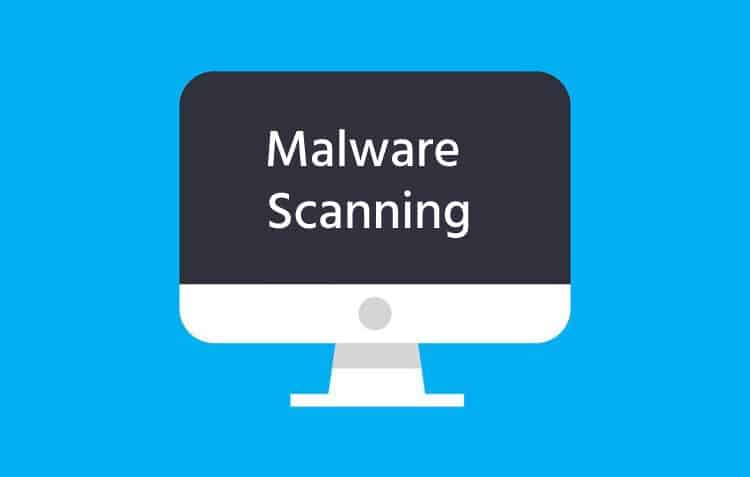What is Malware?
A ‘malware’ (contraction for ‘malicious software’) is a program that is specifically created for malicious intent. When these software programs enter your device, it causes disruption and destruction of your files. They may also gain unauthorized access to your system, leading to the corruption of your device. Malwares are often typically delivered over any network and they virtually conduct any behaviour that the attacker wants.
Malwares are designed into various kinds that harm your system in different ways. A few types of malware are virus, worms and Trojan. In the modern era, it is not uncommon for hackers to try and gain access to your system by exploiting weak points of your website.
How to prevent malware attacks?
Malware makes advantage of your website to disseminate viruses, take control of machines, and steal sensitive information like credit card details or other private data. Malware code can infect your consumers’ PCs when they visit your website because it is difficult to detect.
Even the most basic blog on a regular website could have thousands of possible vulnerabilities. You can lessen the possibility of hackers finding your website and assaulting it by utilising vulnerability assessment to pinpoint the most important flaws that need to be fixed.
How to scan for malware?
In order to ensure proper security of your website, it is advised to occasionally use a website malware scanner. In the absence of line-by-line inspection, malicious code in your website’s source code can be challenging to find. Without behavioural analysis of your code using a browser simulator, some malware that is launched by the display of a page might go undetected.
DigiCert offers a free daily malware screening service for your public web pages when you secure your website with a DigiCert SSL Certificate. You will be taken to a list of pages that are affected and informed of the code that is the problem in case of malware detection. After getting rid of any traces of the code, you can ask for a 24-hour rescan of your website.
How does the malware scanner work?
With the number of malicious software trying to gain access to your device, it is important to take precautionary actions for the protection of private data. Also, it is equally necessary to scan your device for any malware that might have breached security protocols and is actively trying to destroy your software files.
The daily malware scanning service for websites checks all website code, including javascript and iframes, at the hostname specified in the SSL certificate. To identify code that might be activated by the display of a page, the service does a static analysis of website code as well as behavioural analysis using a browser simulation. The service scans a select number of pages on your website rather than all of them in order to look for harmful activity. However, it doesn’t scan your network, look for viruses on internal desktop machines, check attachments, or check internal login-required web pages.
What if the website contains malware?
In case any malicious activity is detected on your website, you will be notified about the suspicious programs with the help of an email. Afterwards, you can access the results with the help of your Trust Centre account or alternatively, your DigiCert PKI platform for an SSL console.
After you scan site for malware, the tab for Website Security Services conjures a list of virus infestation and the accompanying sources that are the root of the problem. The user or the administrator of the malware infiltrated website can easily remove all sources and codes that are displaying suspicious behaviour or can threaten your privacy. Furthermore, another malware scan can be requested to make sure there are no lingering viruses or Trojans.
When does the malware scanner start working?
As soon as the business websites are authenticated, the scanning procedure begins automatically. In case you wish to stop the scanning process, sign in to your Trust Centre Account or DigiCert platform in order to deactivate.
The scanning procedure occurs by the use of the domain name. A unique SSL certificate is issued for each individual html page. Malware scanning will automatically begin as long as you contain a website with valid SSL certifications. Being customizable, the malware scanner can be easily turned off by the administrator.
What does it mean to be blacklisted?
Web browsers often tend to exclude any suspicious website in order to prevent potential malware from attacking you. Search engines have the ability to warn you if you accidentally click on malware infected sites.
Google, Yahoo, Bing, Firefox or any other similar browsers blacklist sites that does not have proper authentication. In case you see a website that is flagged by your search engine, it will be best to not access it.
Will other scanners be replaced by DigiCert?
The malware scanner offered by DigiCerrt is only intended for providing additional support to business organizations and their clients. So, no enterprise scanning solutions are replaced by this platform.
Old fashioned traditional anti virus software’s focuses on solely one point, that is, protection of the desktop and computer system. Most of the enterprise scanning programs available today are built with the purpose of discouraging employees from accessing or installing any malicious software. Instead of preventing a company website from actively distributing viruses, these scanners ensure that you do not mistakenly download any viruses.
Malicious codes must be prevented to access your files at all costs, otherwise they may compromise the security of your system. A hacker gaining entry into your system might lead to theft of invaluable information that you wish to safeguard.
It is always important to remember that hackers tend to target websites that can be easily infiltrated. In order to prevent security breaches, activate strong and authentic anti virus on your device to safeguard your private information. Periodically activate your website malware scanner to ensure that there are no suspicious activities taking place without your knowledge.


